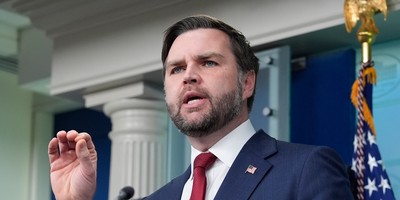Several weeks ago I attended and participated in a conference devoted to anti-terrorist strategies. MI5 and FBI officials were in attendance as were former terrorists. The meetings were open and reasonably well attended. Yet when it was over, all I could recall was the reliance on clichés as policy recommendations.
One presumptive expert delivered a paper on the “3Es,” education, engagement, enforcement. While I agreed with his sentiment, there was nothing in his paper to which action could be attached. I kept asking myself what is the nature of this education and how effective can it be in opposing theological arguments? Could the relativism and multicultural views that dominate elite circles in the West be converted into logical or emotional instruments to curb terrorism?
Similarly, what does engagement mean? Interfaith seminars that I have attended are based on the premise that those in the Judeo Christian world have an obligation to understand Islam. While that may be necessary, interfaith dialogue, it seems to me, should be reciprocal. I assume that Muslims would want to develop an appreciation of the Judeo Christian traditions as well as the reverse. Yet that condition rarely prevails. If engagement is a one way street, how can it possibly be successful?
Enforcement is yet another cliché that relies on the obvious, but is activated by obfuscation. If terrorists break the law, if they are intent on murder and mayhem, the full weight of the law should be applied. However, legal technicalities often trump common sense. As a consequence, justice is a matter of circumstance and legal wrangling.
It is also the case that President Obama often conflates cliché and policy. Additional insurance for the unemployed, for example, is described as an essential benefit for the needy. How one pays for this benefit or the net effect on the economy are matters rarely disclosed. Perhaps the president doesn’t know, but the barrenness of the commentary is palpable.
Recommended
On the foreign policy front there is a continuing refrain that smacks of a hackneyed bromide: “We will not tolerate an Iran with nuclear weapons.” Tolerate or not, the Iranian regime has, according to our own intelligence estimates, enough fissionable material to produce several nuclear weapons even though these bombs may not yet be attached to a missile fleet. Of what possible value is this cliché when it doesn’t speak to actual policy and doesn’t conform to current conditions?
That is precisely the problem associated with clichés: they don’t address real policy concerns. They may offer public reassurance; they may even be comforting. But the actual effect, more often than not, is deception.
During the ecological crisis in the Gulf of Mexico charges between the government and British Petroleum were hurled to and fro. When it appeared as if President Obama was negligent or hesitant to act, he responded by noting “I’ve been on top of this matter (the leak) from the outset.” If one were to parse this statement, it becomes apparent it is yet another reflexive cliché. What does it mean to be “on top of the matter”? If the president was in charge, he was unable to provide guidance on how to deal with the issue; if he was “on top” why was there a sixteen day delay before action was taken? Who was responsible for the deception about the amount of oil escaping into the sea?
Clichés can get you into trouble. They may strike a responsive chord, but that doesn’t obviate the ambiguity. Overused expressions have their place in communication, but rarely in policy discussions. The problem, of course, is that politicians reference them because they are convenient, words with familiarity. That the words may not have any meaning or worthwhile application is often lost in the midst of debate and extemporaneous commentary.
For those who listen carefully, identify the tell-tale signs, those gotcha moments. If enough thoughtful listeners could heed the signs, cliché driven policy statements might be infrequently used. I don’t expect them to disappear. After all, they are as familiar as “go along to get along” or “happy as a lark” or “fool me once…” The list goes on as does the way to conceal the policy steps necessary to address an issue.

























Join the conversation as a VIP Member